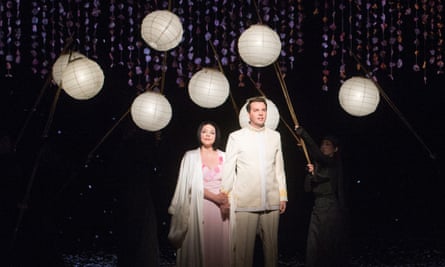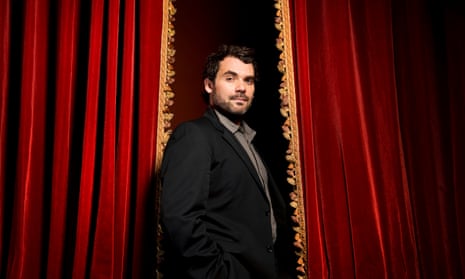English National Opera’s new artistic director Daniel Kramer today laid out further details for the company’s future under his leadership and spoke passionately about the importance of access to the arts.
“Music is an incredible, essential and lateral part of our society,” said the US-born director. “With zero sentimentality I say that what happened to my country at the weekend in Orlando, and the ongoing and repulsive violence problems the US faces, I believe ties directly into a lack of arts education, a lack of lateral thinking and a lack of creativity which is imbued in us as children,” said Kramer.
The director is committed to his new brief of widening access to the Coliseum. Plans include concerts of operatic repertoire, and also visits from iconic musicians from beyond the classical sphere, from India, Brazil or Africa, who would bring a new audience with them.
“We are a public arts organisation - we’re here to serve the whole community. I can’t expect every Londoner to want to see La Bohème, but I would love to feel that part of what we’re doing is making the Coliseum a home for music in London,” he said.
Opera will remain the core of the company’s output, Kramer affirmed, within which a focus on the classic works of the repertoire will, he hopes, stabilise the troubled company.

“For my first three years of programming... I’m going to focus on the classics. We need to get our core repertoire into revivable productions that are really thrilling people,” he said.
He spoke of the ‘blessing’ that Anthony Minghella’s 2005 production of Madame Butterfly – currently on its sixth revival – has been for the company. “You can’t do Wagner every season, financially. I’m looking much more at our core repertoire, with small gems of course every now and then, operas by composers such Janacek, Debussy, or Tippett,” he said.
Kramer and ENO chief executive Cressida Pollock reaffirmed the company’s commitment to remaining in the Coliseum, the largest theatre in London. Work to reconfigure the cramped front-of-house space will begin this summer, and plans continue to mount smaller productions in alternative venues to the 2,500-seat theatre.
“We expect to go back into Arts Council National Portfolio funding in the next round [December],” said Pollock, “but at the moment every bet about Arts Council funding is off until 23 June. My biggest concern – and that of all arts organisations – is Brexit.”










